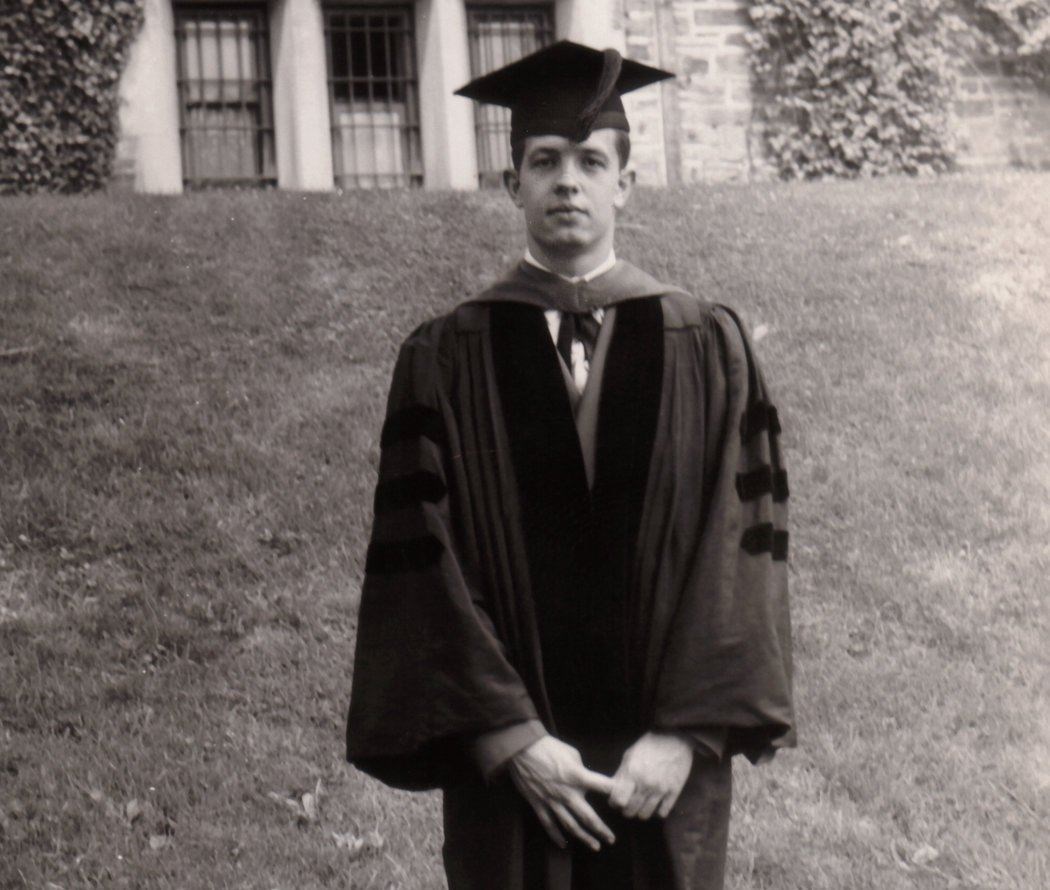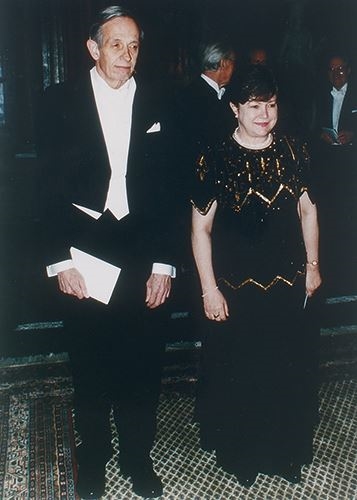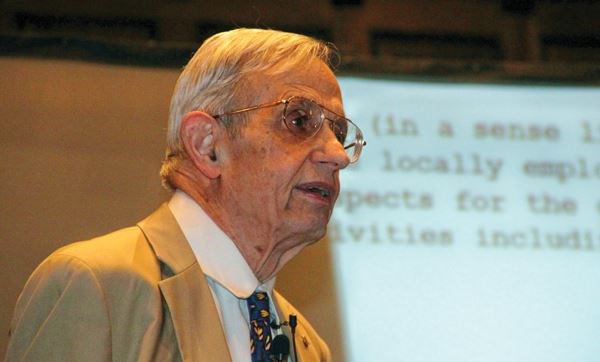“On the last day of planet Earth's existence, people will think about Superman, blue tights and all” (Hogue). His cape will be fluttering and his face will be set with determination. He will swoop down, scoop us up in his arms, and rescue us all from imminent death. With his kindness, selflessness, and integrity, Superman will never let us down. However, in modern times, perhaps we should begin to look towards a more realistic protagonist; perhaps we need someone we can relate to. In times of terror and economic crisis, we need real people to show us how to push through real problems. We need real-life heroes to do what our mythical superheroes cannot; we need them to change our world. When bullets fly and bombs tear us apart, our heroes must show us how to go on; they must inspire us to keep fighting. Their hands must shape our futures, their voices must give us hope, and their actions must show us how to overcome anything. Instead of strong bodies, they must have strong hearts. Instead of beautiful faces, they must have beautiful minds. As true heroes, they must positively transform our world and show us how to overcome turmoil.
 John Nash at his graduation from Princeton in 1950.https://www.nytimes.com/2015/05/25/science/john-nash-a-beautiful-mind-subject-and-nobel-winner-dies-at-86.htmlWith his immeasurable passion for changing the world and his capacity to overcome any obstacle in his path, John Nash is the hero that one can look to in times of crisis. Nash was born to John and Virginia Nash on June 13, 1928. He grew up in Bluefield, West Virginia with his sister, Martha. While he was emotionally disconnected from the world around him, he was academically talented. As a high school senior, he won a college scholarship from the George Westinghouse competition and decided to enroll in the Carnegie Institute of Technology the following year. After graduating from Carnegie, he moved to Princeton to earn his doctorate in mathematics. He made several groundbreaking discoveries at Princeton that are still relevant today. After he earned his doctorate, MIT offered Nash a position as a researcher and instructor. He accepted and soon began researching and developing new brilliant theorems. At MIT, Nash met Alicia Larde, whom he married in 1957. Four years later, they had a son named John Charles Nash. However, at age thirty, Nash’s successful life took a turn for the worse. Nash began to exhibit signs of schizophrenia in 1959. Schizophrenia is a chronic mental disorder that affects a person’s emotions, thoughts, and behavior. It often causes disconnection from reality and voices inside the person’s head. With his decline into madness, Nash was all but forgotten. From 1959 until around the mid-1980s, Nash traveled through Europe with delusions of renouncing his U.S. citizenship. He also lived at various U.S. hospitals and roamed around the Princeton campus. However, in 1990, after three decades of enduring schizophrenia, Nash began to miraculously recover. Just four years later, he was recognized for his equilibrium theory with a Nobel Prize in Economics. By the time he had fully recovered from schizophrenia, he had not only regained his reputation as a brilliant mathematician but also had also evolved from the emotionally disconnected boy that he was in his youth to an emotionally sensitive man. John Nash died in a car accident on May, 23, 2015, however his legacy lives on. A true hero must reshape the world for the good of others. They must be able to conquer any obstacles in their path, and, in doing so, they must provide others with motivation to overcome their own obstacles. Because he utilized his innovative brilliance to better society and used his tenacity to overcome devastating obstacles, John Nash is a true hero.
John Nash at his graduation from Princeton in 1950.https://www.nytimes.com/2015/05/25/science/john-nash-a-beautiful-mind-subject-and-nobel-winner-dies-at-86.htmlWith his immeasurable passion for changing the world and his capacity to overcome any obstacle in his path, John Nash is the hero that one can look to in times of crisis. Nash was born to John and Virginia Nash on June 13, 1928. He grew up in Bluefield, West Virginia with his sister, Martha. While he was emotionally disconnected from the world around him, he was academically talented. As a high school senior, he won a college scholarship from the George Westinghouse competition and decided to enroll in the Carnegie Institute of Technology the following year. After graduating from Carnegie, he moved to Princeton to earn his doctorate in mathematics. He made several groundbreaking discoveries at Princeton that are still relevant today. After he earned his doctorate, MIT offered Nash a position as a researcher and instructor. He accepted and soon began researching and developing new brilliant theorems. At MIT, Nash met Alicia Larde, whom he married in 1957. Four years later, they had a son named John Charles Nash. However, at age thirty, Nash’s successful life took a turn for the worse. Nash began to exhibit signs of schizophrenia in 1959. Schizophrenia is a chronic mental disorder that affects a person’s emotions, thoughts, and behavior. It often causes disconnection from reality and voices inside the person’s head. With his decline into madness, Nash was all but forgotten. From 1959 until around the mid-1980s, Nash traveled through Europe with delusions of renouncing his U.S. citizenship. He also lived at various U.S. hospitals and roamed around the Princeton campus. However, in 1990, after three decades of enduring schizophrenia, Nash began to miraculously recover. Just four years later, he was recognized for his equilibrium theory with a Nobel Prize in Economics. By the time he had fully recovered from schizophrenia, he had not only regained his reputation as a brilliant mathematician but also had also evolved from the emotionally disconnected boy that he was in his youth to an emotionally sensitive man. John Nash died in a car accident on May, 23, 2015, however his legacy lives on. A true hero must reshape the world for the good of others. They must be able to conquer any obstacles in their path, and, in doing so, they must provide others with motivation to overcome their own obstacles. Because he utilized his innovative brilliance to better society and used his tenacity to overcome devastating obstacles, John Nash is a true hero.
 John and Alicia Nash at the Nobel ceremony in 1944.A Beautiful Mind by Sylvia NasarWhile many people are remarkably intelligent, few have the passion to make a lasting impact on the world. John Nash sought to transform society with his mathematical brilliance. As a child, Nash was socially awkward and more absorbed in experiments and mathematical problems than in sports. However, he wished to use his academic passions to change the world: “A childhood friend, Edwin Elliott, remembers him saying, ‘Why waste time playing baseball, when the world needed so much more?’ ‘He was just different,’ recalls another. ‘The beauty of his difference is that he felt like he had to do something different’" (“John Forbes Nash, Jr.” John Forbes Nash, Jr., Jan. 2010, p. 1. EBSCOhost). Rather than indulging in childlike activities, Nash aspired to do what the world needed. He recognized that society was not perfect, so he set out to change it. His willingness to sacrifice childhood enjoyment for the good of the world makes John Nash a worthy hero. This devoted attitude led Nash to make a revolutionary discovery in game theory while earning his doctorate at Princeton. Game theory is the branch of mathematics that analyzes the behavior of multiple participants in a setting with common rules, strategies, rewards, and punishments. In the field of game theory, Nash developed the Nash equilibrium, which is essentially a rule that no one would want to disobey even if there were no effective law enforcement. The Nash equilibrium has since become remarkably important in several fields of study: “In 1950, Nash submitted his equilibrium theory as his Princeton doctoral thesis. It has since become widely used in military and economic strategies, as well as in biology. According to animal behaviorist Peter Hammerstein, quoted by Robert Pool in Science, ‘The Nash equilibrium turns out to be terribly important in biology.... Such concepts are proving vital in analyzing a range of biological data, from sex ratios to animals' decisions about whether to fight each other for territory or food.’” (“John Forbes Nash, Jr.” Encyclopedia of World Biography, vol. 22, Gale, 2002). Few people have the intelligence to invent a brilliant mathematical theorem. Nash not only invented the equilibrium theory but also reshaped multiple fields in ways that are still relevant today, almost seventy years later. The use of his mathematical talent to make a lasting impact on the world shows a heroic desire to make the world a better place. Anyone who strives to make the world better, not just for themselves but for others, earns the title of a true hero. Natural intelligence is admirable, but using that intelligence to help others is true heroism.
John and Alicia Nash at the Nobel ceremony in 1944.A Beautiful Mind by Sylvia NasarWhile many people are remarkably intelligent, few have the passion to make a lasting impact on the world. John Nash sought to transform society with his mathematical brilliance. As a child, Nash was socially awkward and more absorbed in experiments and mathematical problems than in sports. However, he wished to use his academic passions to change the world: “A childhood friend, Edwin Elliott, remembers him saying, ‘Why waste time playing baseball, when the world needed so much more?’ ‘He was just different,’ recalls another. ‘The beauty of his difference is that he felt like he had to do something different’" (“John Forbes Nash, Jr.” John Forbes Nash, Jr., Jan. 2010, p. 1. EBSCOhost). Rather than indulging in childlike activities, Nash aspired to do what the world needed. He recognized that society was not perfect, so he set out to change it. His willingness to sacrifice childhood enjoyment for the good of the world makes John Nash a worthy hero. This devoted attitude led Nash to make a revolutionary discovery in game theory while earning his doctorate at Princeton. Game theory is the branch of mathematics that analyzes the behavior of multiple participants in a setting with common rules, strategies, rewards, and punishments. In the field of game theory, Nash developed the Nash equilibrium, which is essentially a rule that no one would want to disobey even if there were no effective law enforcement. The Nash equilibrium has since become remarkably important in several fields of study: “In 1950, Nash submitted his equilibrium theory as his Princeton doctoral thesis. It has since become widely used in military and economic strategies, as well as in biology. According to animal behaviorist Peter Hammerstein, quoted by Robert Pool in Science, ‘The Nash equilibrium turns out to be terribly important in biology.... Such concepts are proving vital in analyzing a range of biological data, from sex ratios to animals' decisions about whether to fight each other for territory or food.’” (“John Forbes Nash, Jr.” Encyclopedia of World Biography, vol. 22, Gale, 2002). Few people have the intelligence to invent a brilliant mathematical theorem. Nash not only invented the equilibrium theory but also reshaped multiple fields in ways that are still relevant today, almost seventy years later. The use of his mathematical talent to make a lasting impact on the world shows a heroic desire to make the world a better place. Anyone who strives to make the world better, not just for themselves but for others, earns the title of a true hero. Natural intelligence is admirable, but using that intelligence to help others is true heroism.
Oftentimes, the world seems to collapse and it’s difficult to persevere through the wreckage. John Nash persevered through obstacles and triumphed over them. Before he was diagnosed with schizophrenia, Nash was arrogant, emotionally disconnected, and aggressive. People described him as aloof, detached, and egotistical. He neglected the needs of his own son and often treated Alicia with cold disrespect. However, Nash emerged from decades immersed in delusions as an entirely different man. This incredible metamorphosis transformed him into a caring, loving, and sensitive man:
 Nash speaking at the University of Scranton at the Mullin Lecture series in 2011.https://www.scranton.edu/alumni/journal/issues/2012/spring/commons/University-News.shtml“Unlike a game of Hex, outcomes in real life aren't predetermined by the first or even the fiftieth move. The extraordinary journey of this American genius, this man who surprises people, continues. The self-deprecating humor suggests greater self-awareness. The straight-from-the-heart talk with friends about sadness, pleasure, and attachment suggests a wider range of emotional experiences. The daily effort to give others their due, and to recognize their right to ask this of him, bespeaks a very different man from the often cold and arrogant youth… In deed, if not always in word, Nash has come to a life in which thought and emotion are more closely entwined, where getting and giving are more central, and relationships are more symmetrical. He may be less than he was intellectually, he may never achieve another breakthrough, but he has become a great deal more than he ever was - ‘a very fine person,’ as Alicia put it once” (Nasar 388).
Nash speaking at the University of Scranton at the Mullin Lecture series in 2011.https://www.scranton.edu/alumni/journal/issues/2012/spring/commons/University-News.shtml“Unlike a game of Hex, outcomes in real life aren't predetermined by the first or even the fiftieth move. The extraordinary journey of this American genius, this man who surprises people, continues. The self-deprecating humor suggests greater self-awareness. The straight-from-the-heart talk with friends about sadness, pleasure, and attachment suggests a wider range of emotional experiences. The daily effort to give others their due, and to recognize their right to ask this of him, bespeaks a very different man from the often cold and arrogant youth… In deed, if not always in word, Nash has come to a life in which thought and emotion are more closely entwined, where getting and giving are more central, and relationships are more symmetrical. He may be less than he was intellectually, he may never achieve another breakthrough, but he has become a great deal more than he ever was - ‘a very fine person,’ as Alicia put it once” (Nasar 388).
While overcoming schizophrenia is a remarkable feat, Nash did not stop there. In the process of overcoming schizophrenia, he also overcame another obstacle: his emotional detachment. He shattered the shackles that had once kept him from forming intimate relationships and emotional connections. Nash defeated schizophrenia and used it as an opportunity to defeat his own emotional isolation. Anyone who can not only conquer their obstacles but also use them to evolve into a better person human being is a true hero. After this remarkable recovery from schizophrenia and evolution of compassion, Nash was recognized for his achievements in mathematics with a Nobel Prize in Economics. Following his acceptance of the award, Nash wrote a brief autobiographical essay in which he discussed what he wished to do in the future:
“Statistically, it would seem improbable that any mathematician or scientist, at the age of 66, would be able, through continued research efforts, to add much to his or her previous achievements. However I am still making the effort, and it is conceivable that with the gap period of about 25 years of partially deluded thinking providing a sort of vacation, my situation may be atypical. Thus I have hopes of being able to achieve something of value through my current studies or with any new ideas that come in the future” (Nash).
Schizophrenia destroys logic and perceptions of reality. For a mathematician who relies solely on logic, this would be particularly devastating. Therefore, it seems that Nash would be depressed and discouraged. However, instead of dwelling in the past, he looked at his miraculous recovery as an opportunity to continue to impact the world with mathematics. Anyone can recover from a detrimental illness by chance, but only the most heroic of people can look at the illness as a gift; only true heroes can see that the obstacle allows them to grow as a person. When life throws obstacles in one’s path, it’s easy to give up. It’s easy to fall into a chasm of depression and negativity. John Nash, however, persisted through all obstacles in his life and used them as a chance to grow as an individual.
 John and Alicia Nash died in a car accident on May 23, 2015.https://www.chicagotribune.com/news/83623587-157.htmlJohn Nash is the epitome of a true hero. His ability to overcome any obstacle and his altruistic desire to help shape the world speaks of a remarkable man. He set out to change the world and help others using his mathematical brilliance. When the math problems became demanding, when he faced insuperable emotional detachment, and when schizophrenia seemed to destroy his life, Nash did not stop. He punched at the barriers in his path until he smashed through them. In fact, he used the barriers in his path to propel him further in life. Because of his mathematical talent and perseverance in the face of obstacles, Nash is an inspiration to me and others. Since researching Nash, I began to discover my own passion for mathematics. While I have always been interested in math, I did not fully realize my own enthusiasm until I began to research Nash. As I read, I found myself intrigued by the mathematical concepts Nash dealt with. I spent many hours over the course of several weeks researching the concepts for my own enjoyment. I tried to understand the problems that Nash himself solved. While I’m certainly not the genius mathematician Nash was, John Nash has given me new found motivation for a career in mathematics. Additionally, Nash’s determination to overcome any obstacle in his path and grow from it has given me inspiration to overcome the obstacles in my life. On some days, I find it difficult to motivate myself to constantly try my best. I question why I feel obligated to constantly succeed. Why do I try so hard to excel in math, English, or chemistry? Why must I be a great musician, soccer player, or runner? Although the obstacles in my life are not nearly as formidable as the obstacles Nash overcame, Nash showed me that I can conquer the barriers keeping me down. I have learned that everyone has obstacles in their lives, but it’s how they deal with these obstacles that determines success. In truth, John Nash’s story has not suddenly stopped every negative feeling associated with my obstacles, however, it has taught me to persevere no matter how difficult the situation may feel. Through his contributions to society and resilience in the face of obstacles, John Nash proved that he is the hero our society needs. With his strong heart and spectacular mind, Nash shaped our world and inspired us to keep fighting no matter the situation. He showed us how to push through real problems in times of real crisis. He was just a man, yet he was also so much more. He is our inspiration; he is our Superman.
John and Alicia Nash died in a car accident on May 23, 2015.https://www.chicagotribune.com/news/83623587-157.htmlJohn Nash is the epitome of a true hero. His ability to overcome any obstacle and his altruistic desire to help shape the world speaks of a remarkable man. He set out to change the world and help others using his mathematical brilliance. When the math problems became demanding, when he faced insuperable emotional detachment, and when schizophrenia seemed to destroy his life, Nash did not stop. He punched at the barriers in his path until he smashed through them. In fact, he used the barriers in his path to propel him further in life. Because of his mathematical talent and perseverance in the face of obstacles, Nash is an inspiration to me and others. Since researching Nash, I began to discover my own passion for mathematics. While I have always been interested in math, I did not fully realize my own enthusiasm until I began to research Nash. As I read, I found myself intrigued by the mathematical concepts Nash dealt with. I spent many hours over the course of several weeks researching the concepts for my own enjoyment. I tried to understand the problems that Nash himself solved. While I’m certainly not the genius mathematician Nash was, John Nash has given me new found motivation for a career in mathematics. Additionally, Nash’s determination to overcome any obstacle in his path and grow from it has given me inspiration to overcome the obstacles in my life. On some days, I find it difficult to motivate myself to constantly try my best. I question why I feel obligated to constantly succeed. Why do I try so hard to excel in math, English, or chemistry? Why must I be a great musician, soccer player, or runner? Although the obstacles in my life are not nearly as formidable as the obstacles Nash overcame, Nash showed me that I can conquer the barriers keeping me down. I have learned that everyone has obstacles in their lives, but it’s how they deal with these obstacles that determines success. In truth, John Nash’s story has not suddenly stopped every negative feeling associated with my obstacles, however, it has taught me to persevere no matter how difficult the situation may feel. Through his contributions to society and resilience in the face of obstacles, John Nash proved that he is the hero our society needs. With his strong heart and spectacular mind, Nash shaped our world and inspired us to keep fighting no matter the situation. He showed us how to push through real problems in times of real crisis. He was just a man, yet he was also so much more. He is our inspiration; he is our Superman.
Works Cited
Hogue. “Why Do Americans Love Superheroes So Much?” Mic, Mic Network Inc., 25 Oct. 2015, mic.com/articles/48431/why-do-americans-love-superheroes-so-much#.PPub7Zuej.
"John F. Nash Jr. - Biographical". Nobelprize.org. Nobel Media AB 2014. Web. 21 Dec 2017.
"John Forbes Nash, Jr.” Encyclopedia of World Biography, vol. 22, Gale, 2002. Biography in Context. Accessed 21 Dec. 2017.
"John Forbes Nash, Jr." John Forbes Nash, Jr. (Biography Today), Jan. 2010, p. 1. EBSCOhost.
Nasar, Sylvia. A Beautiful Mind: the Life of Mathematical Genius and Nobel Laureate John Nash. Simon & Schuster Paperbacks, 2011.
Page created on 2/17/2018 12:46:05 AM
Last edited 6/10/2018 10:40:24 PM
